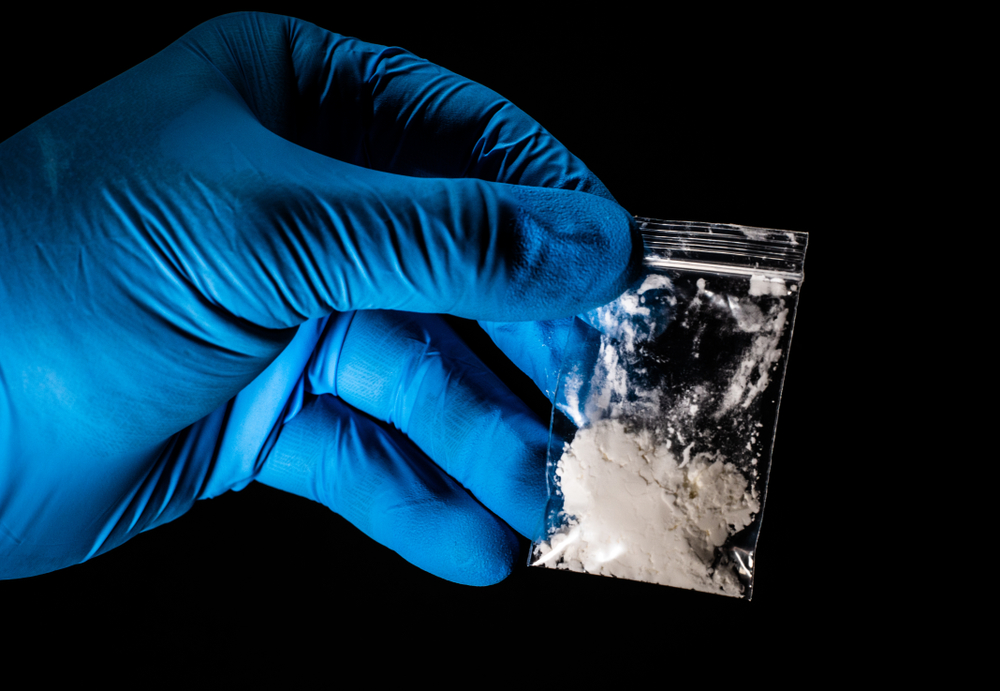Fentanyl made its debut in the medical field in 1959. Originally intended to help patients with pain, it did end up being abused like most prescription medications. Today fentanyl is mixed with other drugs such as heroin, cocaine, and other counterfeit pills.
This has seen the fentanyl OD rates raise 2.5 times faster than most hard drugs and outpaced prescription pill ODs by more than 550.94%. The first step to kicking any drug addiction is admitting to having an addiction and seeking help.
Help starts with detoxing. Like many opioids detoxing from fentanyl is difficult, but it can be done at home with the right plan and support. The first step is accepting that you have a problem and want to change. That’s huge, so congrats on taking this first step!

What is a Fentanyl Detox?
Fentanyl detox is ridding your body of this powerful opioid. It’s not easy, but by slowly tapering off fentanyl under medical supervision, you can overcome your addiction and start rebuilding your life.
The first step is admitting you need help and seeking treatment from professionals. They will evaluate your addiction and health, then create a customized detox plan. This will likely include gradually reducing your fentanyl dosage over days or weeks to minimize withdrawal symptoms.
Withdrawal symptoms like nausea, vomiting, and diarrhea can start within hours of stopping fentanyl. Medical staff will provide medications to alleviate discomfort.
You’ll go through psychological symptoms, too, such as depression, anxiety, and mood swings. Counseling and support groups can help you cope during this difficult time.
The detox process typically lasts 5 to 14 days. Staying in a rehab facility is best, where you’ll receive 24/7 medical monitoring and care. Outpatient detox is also an option if you have a strong support system at home.
Detoxing is just the first step. Ongoing treatment like counseling, therapy, and long-term recovery programs are usually needed to overcome addiction for good. But by completing a medically supervised detox, you’ll have started your journey to a fentanyl-free life with the physical and mental tools to stay committed to sobriety.
Read more: Does Your Body Detox From Drugs When You Start Eating Healthy?

How To Prepare for Fentanyl Detox at Home
To prepare for detoxing from fentanyl at home, you should take several important steps.
Make a Plan
Developing a comprehensive plan for your detox will increase your chances of success. Work with your doctor to determine the best course of treatment, including medications or therapies that may help ease withdrawal symptoms.
Set a firm date to stop using fentanyl and plan to take time off work or school during the initial detox period. Stock up on supplies and ask friends or family members to provide support.
Prepare Your Space
Choose a space in your home where you’ll be comfortable during detox and withdrawal. A bedroom or living room is ideal. Ensure you have entertainment options like books, movies, music, and games to help distract yourself from cravings and symptoms.
Gather pillows, blankets, tissues, bottled water, and any medications your doctor has prescribed. Consider temporarily removing sharp, breakable, or potentially dangerous objects from the space.
Ask for Help
Don’t detox alone. Tell people close to you about your plan and ask if they can provide support by staying with you, checking in regularly, or helping with basic tasks. Look into local support groups and ask if members would offer help or advice.
The more support you have, the greater your chances of success. Detoxing from fentanyl is challenging, but with preparation and support, you can overcome your addiction and start your recovery.

The Fentanyl Detox Process: What to Expect
Your fentanyl detox will by no means be a walk in the park. At points, you will want to give up because of the physical and mental anguish, but you should not. Here are a few insights on what to expect during your detox journey.
The First 3 Days: Withdrawal Symptoms Peak
The first few days are the most difficult. Fentanyl has a short half-life, so withdrawal symptoms start quickly after the last dose. You can expect:
Severe flu-like symptoms: Nausea, vomiting, diarrhea, chills, and body aches. Stay hydrated and take over-the-counter medications to relieve symptoms.
Anxiety and restlessness: Try relaxation techniques like meditation, yoga, or deep breathing. Limit caffeine and screen time before bed.
Insomnia and sleep disturbances: Maintain a consistent sleep schedule. Limit daytime napping. Use your bed only for sleep to retrain your body.
Drug cravings: Distract yourself with exercise, hobbies, social interaction, or talking to a helpline. Cravings will pass.
Days 4 to 7: Withdrawal Symptoms Decrease
Physical symptoms start to improve, but psychological symptoms may intensify.
Mood swings, depression, and irritability are common. Stay connected to your support network.
Fatigue and exhaustion set in. Rest as much as possible. Light exercise like walking can also help.
Appetite returns, so eat a healthy diet and stay hydrated. Nutrition is important for recovery.
Week 2 and Beyond: Post-Acute Withdrawal Syndrome
Sleep, mood, and energy levels start to stabilize. But, PAWS can persist for months.
PAWS include mood swings, anxiety, depression, fatigue, and cravings. These symptoms come and go.
Stay committed to your recovery plan. Continue attending support groups or seeing a counselor. Make lifestyle changes to avoid relapse.
Exercise, meditate, and practice self-care daily. Find new hobbies and social activities to fill your time.
Be patient through the ups and downs. Recovery is a lifelong journey. Stay focused on your progress and sobriety.
The detox process is difficult, but fentanyl addiction can be overcome through perseverance and a strong support system. You can do this—take it day by day. Stay strong, stay committed, and keep your eyes on the goal of a healthy, happy life free from addiction.

At-Home Fentanyl Detox Vs. Detox Center
Detoxing from fentanyl at home is challenging but can be done with professional guidance and support. However, detoxing at a specialized treatment center has some key advantages.
Medical supervision: Detox centers provide 24-hour medical monitoring and care from doctors and nurses experienced in withdrawal and addiction treatment. They can properly diagnose and treat any medical issues that arise during the detox process.
Comfort and safety: Detox centers aim to keep patients as comfortable as possible during withdrawal with medications and a quiet, low-stimulation environment. They also reduce risks by removing access to drugs and objects that could cause harm.
Peer support: Connecting with others struggling with similar substance use disorders can help motivate you and keep you accountable.
Transition to treatment: Detox is only the first step. Recovering from fentanyl addiction requires ongoing treatment like counseling, therapy, and support groups. Detox centers streamline transitioning from detox to long-term rehab programs and aftercare.
Read more: Understanding The Benefits Of At-Home Detox
Professional Care With MD Home Detox
Detoxing from fentanyl is an incredibly difficult process, both physically and emotionally. The good news is, you don’t have to do it alone and MD Home Detox is ready to help. D can be dangerous without medical supervision, especially at home. But our at-home detox program is carefully structured and monitored by professionals who ensure the entire process is comfortable, convenient, and effective.

